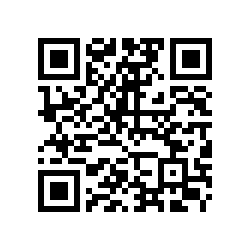Pengembangan Aplikasi Dewan Masjid Indonesia (DMI) Berbasis Ekonomi Umat Dengan Metode Waterfall
(1) Universitas Dian Nuswantoro
(2) Universitas Dian Nuswantoro
(3) Universitas Dian Nuswantoro
(4) Universitas Dian Nuswantoro
(*) Corresponding Author
Abstract
Full Text:
PDFReferences
S. Indra and Z. Rofiqoh, “Transaksi Emoney Terhadap Layanan Gopay Pada Aplikasi Gojek Perspektif Ekonomi Syariah,” Al-Ahkam, vol. 15, no. 2, p. 49, 2019, doi: 10.37035/ajh.v15i2.2176.
A. Setiyowati, “Kampanye Bisnis Islami : Konsep Pembudayaan dan Pemberdayaan Ekonomi Islam di Waroeng Steak & Shake Yogyakarta,” J. Masharif al-Syariah J. Ekon. dan Perbank. Syariah, vol. 4, no. 2, pp. 1–24, 2019.
M. Indrianti, Aplikasi Fee Wakalah pada PT. Bank BRI Syariah KCP Stabat. 2018.
M. S. Rohman, G. W. Saraswati, and N. A. S. Winarsih, “Pengembangan Media Komunikasi Digital Dewan Masjid Indonesia (DMI) Kota Semarang Melalui Pemetaan Masjid Berbasis Android Untuk Meningkatkan Integrasi Informasi Organisasi,” Abdimasku J. Pengabdi. Masy., vol. 3, no. 1, p. 36, 2020, doi: 10.33633/ja.v3i1.62.
N. A. S. Winarsih, M. S. Rohman, and G. W. Saraswati, “Pelatihan dan Pemanfaatan Aplikasi Dewan Masjid Indonesia ( DMI ) Berbasis Web Untuk Pengelolaan Produk dan Kegiatan Masjid Sebagai Dukungan Layanan Masyarakat Kota Semarang,” Abdimasku, vol. 3, no. 1, pp. 29–35, 2020.
N. Anisa, S. Winarsih, P. Harry, M. Dwi, and U. D. Nuswantoro, “Penerapan User-Centered Design pada Sistem Informasi Dewan Masjid Indonesia (DMI) Kota Semarang Berbasis Web untuk Mengelola Potensi Masjid Kota Semarang,” J. Ilmu Komput., vol. XIII, no. 1, pp. 1–8, 2020.
Fahri, A. Jalil, and S. Kasnelly, “Meningkatnya Angka Pengangguran Ditengah Pandemi (Covid-19),” Al MizanJurnal Ekon. Syariah, vol. 2, no. 2, pp. 45–60, 2020.
A. F. Thaha, “Dampak Covid-19 Terhadap UMKM di Indonesia,” J. Brand, vol. 2, no. 1, pp. 147–153, 2020.
M. Rista, “Penerapan Manajemn Islami dalam Penjualan Sembako terhadap Toko Koko di Pusri Palembang,” Universitas Muhammadiyah Palembang, 2019.
F. Islami, G. I. Marthasari, and E. B. Cahyono, “Prototype Aplikasi Pencarian Informasi Ayat Al-Quran Berdasarkan Suara Bacaannya Berbasis Android,” J. Repos., vol. 2, no. 5, p. 561, 2020, doi: 10.22219/repositor.v2i5.564.
DOI: http://dx.doi.org/10.30645/j-sakti.v5i2.379
Refbacks
- There are currently no refbacks.
J-SAKTI (Jurnal Sains Komputer & Informatika)
Published Papers Indexed/Abstracted By:
Jumlah Kunjungan :











